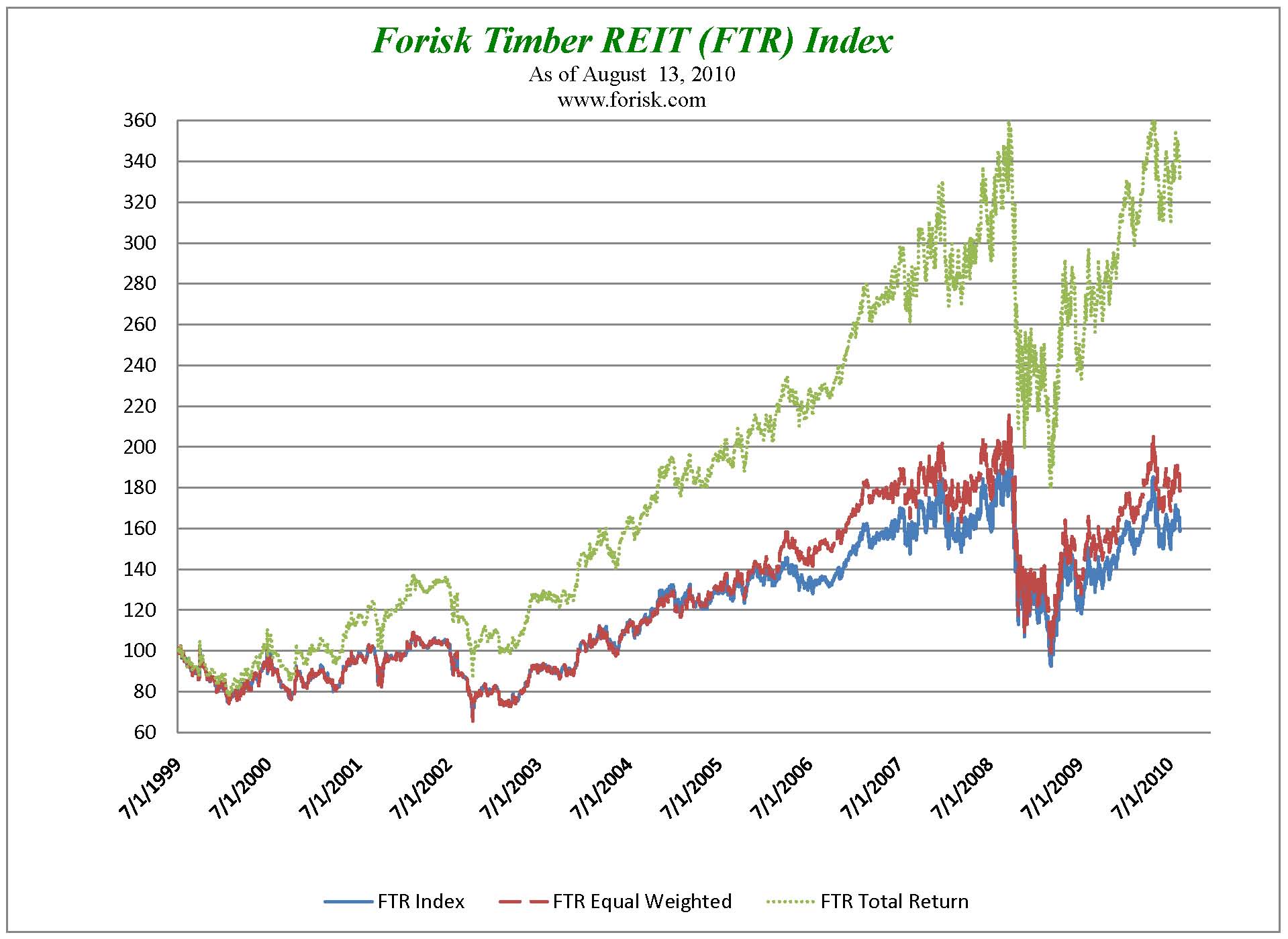As a major final step in its long road to converting to a real estate investment trust (REIT), Weyerhaeuser (WY) announced a special dividend of $5.6 billion on July 11, 2010. Previously, we detailed Weyerhaeuser’s (WY) REIT conversion timeline, which remains on track. Neena Mishra, Forisk’s Director of Equity Research, revisits additional tax implications for shareholders and the firm:
With 6.4 million acres of timberlands, WY remains perfectly suited for adopting a REIT structure. REITs must distribute 90% of their ordinary taxable income to shareholders and they pay no corporate level tax on qualified income (a large portion of WY’s timber segment income would qualify). In addition, most of the dividends received from a timber REIT are capital gains in nature, which are taxed at rates more favorable than ordinary dividends. As a result, investors can expect higher dividends and better after-tax returns going forward. Historically, timber REITs reward shareholders with attractive dividends, with current average yields for the group of 4.9%:
- Plum Creek (PCL): 4.7%
- Rayonier (RYN): 4.2%
- Potlatch (PCH): 5.8%
In a previous post, we described the tax implications of the special dividend payment, which will effectively translate into a 2.5 to 1 stock split for shareholders. However, WY will treat it as a stock issuance for accounting purposes and will not adjust the EPS retroactively, as required in the case of a stock split. The cost basis of shares post dividend will be different from those owned by shareholders before the dividend payout; new shares issued for the special dividend will have a cost basis at the valuation at which they are issued. (Thus, tax implications for shareholders who sell shares will depend on whether they use the average cost or the specific identification method.)
After completing the special dividend payout in the third quarter, WY will revise its tax expense to reflect the effect of the REIT tax status. The tax rate on current year earnings will decrease, and the company will also decrease its deferred tax liability by approximately $1 billion.
Upon converting, Weyerhaeuser will join the Forisk Timber REIT (FTR, “footer”) Index (see figure), which includes the three publicly-traded timber REITs. With Weyerhaeuser, timber REITs will comprise ~7.5% of the total public REIT market capitalization. We expect greater, positive investor interest in this asset class as the FTR Index continues to outperform the S&P 500 with a 2.1% year-to-date return compared to a negative 3.2% return for the S&P 500.


Leave a Reply